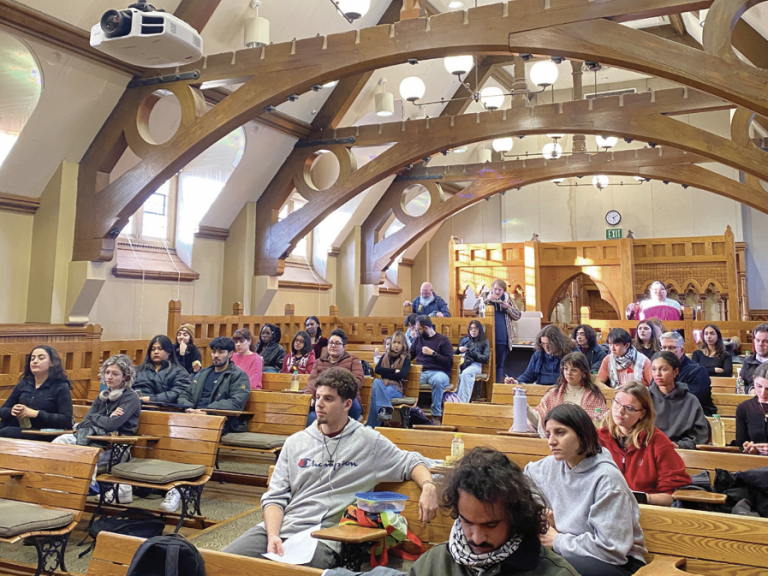Cornelia Ehlebracht ’25
News Editor
Moderated by Catherine Shen, Host of Connecticut Public Radio’s “Where We Live,” The Spring Bicentennial Symposium kicked off with a thought-provoking morning keynote Panel titled “Committed to the Future: (Re)-imagining the Liberal Arts in the Age of AI.” The panel, comprising experts from diverse fields, aimed to challenge traditional views and reshape the narrative surrounding liberal arts education.
Michelle Kovarik, Gregory G. Mario ‘87 Associate Professor of Chemistry, debunked common myths surrounding liberal arts education. She emphasized how the liberal arts foster critical thinking, creativity, and adaptability, skills that are increasingly valuable in the age of artificial intelligence. Alumni Kenzie Levy ‘18, Associate Customer Marketing Manager at Yext, highlighted the ways in which emerging technologies enrich and challenge the liberal arts experience. She stressed that Trinity College allowed her to push boundaries and develop both personally and professionally. Working in the tech industry where discussion is key, her classroom experiences were often similar to her work environment. Ted Moise ‘87, Director of the North Texas Semiconductor Institute at the University of Texas at Dallas, emphasized the significance of interdisciplinary learning and drew a parallel between the transition from using reference books to relying on Google for information and the potential future role of AI language models like Chat GPT, suggesting that AI language models could become the next tool for accessing knowledge and information. Ethan Rutherford, Associate Professor of English, highlighted the enduring value of humanistic inquiry and storytelling in a world increasingly driven by technology, acknowledging that traditionally, writing has been used as a means of showcasing one’s thinking. However, in the age of AI educational professionals need to find creative solutions to have students demonstrate their thoughts.
The panelists agreed that the liberal arts play a crucial role in developing skills that AI cannot replicate, such as creative thinking and meaningful discussions. As technology advances, it becomes even more important to encourage personal connections between professors and students. These connections foster mentorship, guidance, and personalized learning experiences that go beyond what AI-driven platforms can offer.




+ There are no comments
Add yours